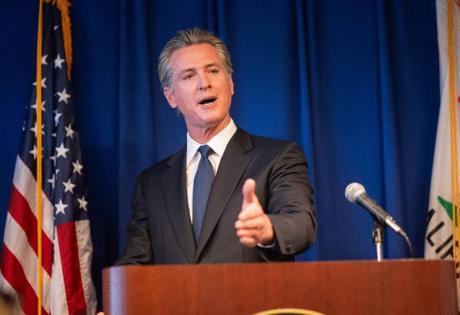Judge temporarily blocks new California election deepfake law, citing First Amendment
Published in Political News
SACRAMENTO, Calif. — California’s new law that allows people to sue over election deepfakes was temporarily blocked by a federal judge.
The judge, in granting a preliminary injunction on Wednesday, wrote that the law likely violates the First Amendment given its broad scope, even if digitally altered media such as by artificial intelligence poses “significant” risks.
“Supreme Court precedent illuminates that while a well-founded fear of a digitally manipulated media landscape may be justified, this fear does not give legislators unbridled license to bulldoze over the longstanding tradition of critique, parody, and satire protected by the First Amendment,” U.S. District Judge John A. Mendez wrote.
Gov. Gavin Newsom’s office countered that the law targeted deepfakes, not satire, that could negatively impact elections.
“Deepfakes threaten the integrity of our elections, and these new laws protect our democracy while preserving free speech — in a manner no more stringent than those in other states, including deep-red Alabama,” a Newsom spokesperson said in a statement. “We’re confident the courts will uphold the state’s ability to regulate these types of dangerous and misleading deepfakes. Satire remains alive and well in California — even for those who miss the punchline.”
The law, which Newsom signed last month, was designed to bar false or misleading election-related communications, like political ads, that had been digitally altered starting four months prior to an election and up to 60 days after. Those who got these communications would be able to sue the distributor for damages and stop the ads’ dissemination. It immediately went into effect.
State law already had prohibited distributing “materially deceptive audio or visual media of a candidate” within 60 days of an election.
The legislation, AB 2839, makes exceptions for satire or parody that is labeled as such, reading, “this section does not apply to an advertisement or other election communication containing materially deceptive content that constitutes satire or parody if the communications includes a disclosure stating ‘this ___ has been manipulated for purposes of satire or parody.’”
Mendez wrote, “While California has a valid interest in protecting the integrity and reliability of the electoral process, AB 2839 is unconstitutional because it lacks the narrow tailoring and least restrictive alternative that a content-based law requires under strict scrutiny.”
YouTuber Christopher Kohls had sued state officials over the measure. Kohls makes satirical political videos, including one this summer that used AI-generated voiceover clips to mimic Vice President Kamala Harris and described her as a “diversity hire.”
The video was promoted by Elon Musk on X. A couple days later, Newsom said he would sign legislation targeting election deepfakes: “Manipulating a voice in an ‘ad’ like this one should be illegal,” Newsom wrote. “I’ll be signing a bill in a matter of weeks to make sure it is.”
Following the Wednesday injunction, Kohls wrote on X, “VICTORY! Lawsuit against Newsom has been won.”
AB 2839 was one of three laws Newsom signed last month concerning election-related deepfakes. The other two don’t go into effect until next year.
Some First Amendment experts had been skeptical of the new law.
“As lawmakers across the country consider legislation to crack down on political falsehoods, Judge Mendez’s opinion serves as a reminder that such efforts often face insurmountable hurdles, and for good reason,” said Jeff Kosseff, a First Amendment scholar of nonpartisan think tank The Future of Free Speech.
_____
©2024 The Sacramento Bee. Visit sacbee.com. Distributed by Tribune Content Agency, LLC.




























































Comments